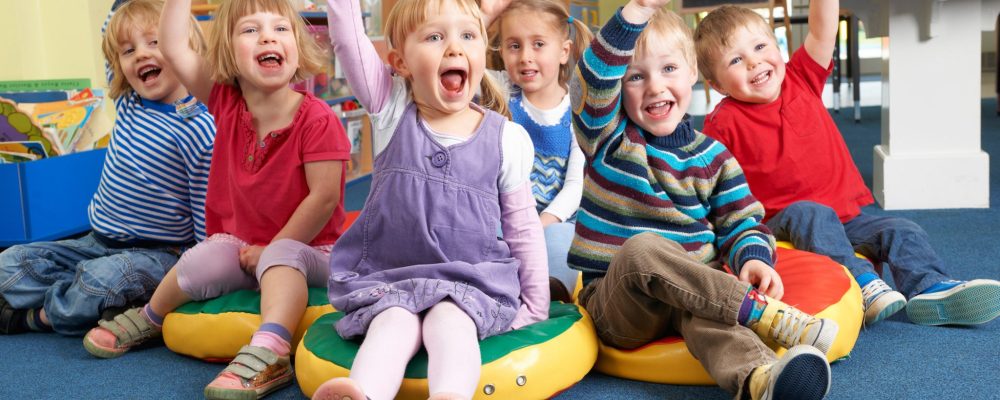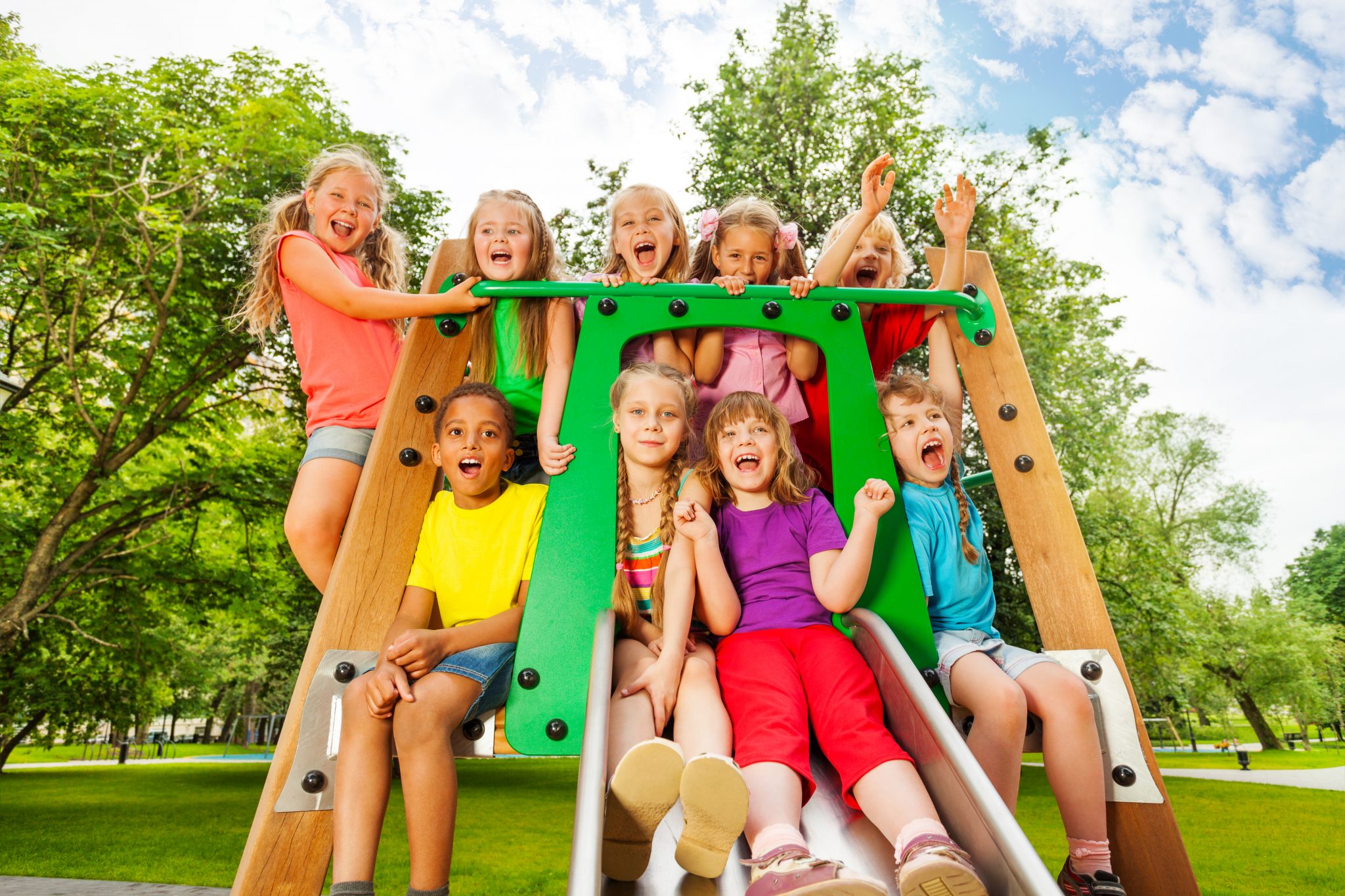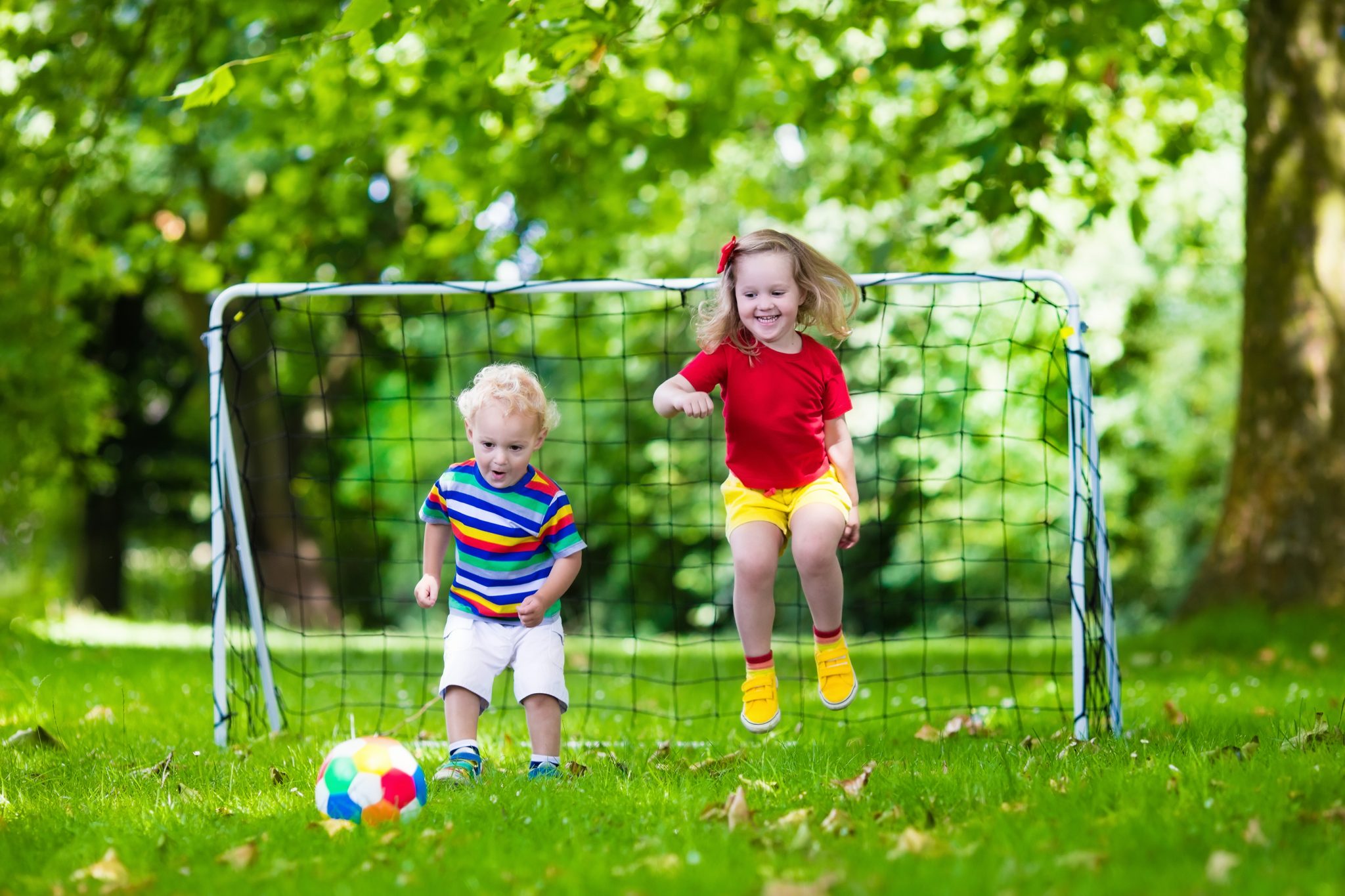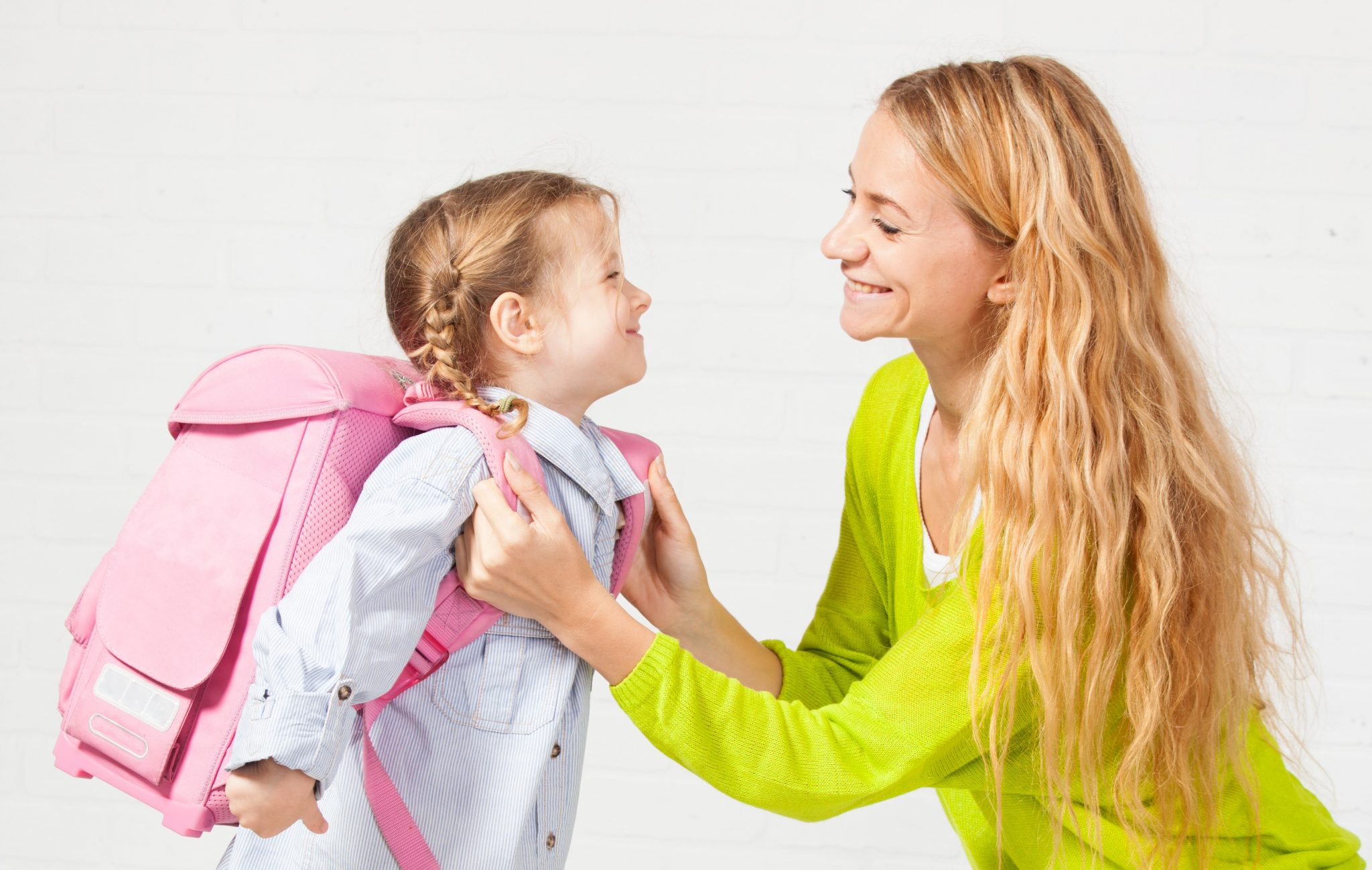My little girl has been very outgoing since the day she was born. She loved the company of adults and children, more people around happier she was. When she was little less than 3 years old, 2 years and 7 months to be exact, I decided to put her into creche for the mornings, just for 3 hours every day. We lived in Ireland at that time and all public creches were desperately crowded and had looong waiting lists. Therefore we had no other option than to put her into private creche.
I chose the creche I wanted my daughter to go to and one day I brought her with me to visit the creche and to fill out the subscription forms. She run into one of the classrooms and started to play with other kids right away. It gave me plenty of time to talk to the creche manager and one of the teachers. I was told that my little girl would go to montessori preschool class at the beginning of September. This class was for kids 3-4 years old who were due to start the school the following year. I almost fainted… My little – only 2yo – baby girl in one class with preschoolers??? But the creche manager looked very confident with her decision and she reassured me that my girl was going to be fine. She said there will be no pressure. September is an adaptation month for all the children, they’re just learning how to get dressed, where to hang their coats, to wash their hands, eat the midday snack and drink from a glass.
Maybe she learns something new in preschool…
I still wonder sometimes why they decided to put her right to the preschool class if they had separate class for 2 years old children which clearly wasn’t full at the time. There were only about 10 kids for 2 teachers. Was it because she was so outgoing or because she was fully potty trained (not so common for 2yo in Ireland)? I really have no idea… I didn’t even get a chance to tell them that she didn’t speak much English. The manager just said that if she wouldn’t settle in alright within 2 or 3 months, they would move her to the other class with smaller children.
How did it go? My little girl started preschool at the age of two years and seven months. She learnt how to put on her coat by herself, wash her hands, reportedly she was able to drink from a glass too even though she was only drinking from a bottle with a newborn sized teat at home until she turned 4. After first 2 months in creche she stopped talking Slovak and started to speak English, or she combined both languages. While playing at home she was imitating everything they did in creche. She pretended to be a teacher and she was telling us what to do. We had a very clear image of how her day in creche looked like. She was even getting homework, e.g.: “Teach your child to cut with scissors.” (Picture of balloons with lines to be cut along as balloon strings.) After three months she could name all the days of the week and months in a year. She could even tell the correct day when we asked what day is it today, what was yesterday and what will be tomorrow. That was all BEFORE her 3rd birthday. Her teacher told me that she was a bit quiet at the beginning of September but soon she started to talk so much that everyone knew that it will be her who will break “the quiet time” first. I was very amazed to see how much she knows and how fast is she learning. After her 3rd birthday she started to bring home working sheets with ink over letters and nicely coloured in pictures.
How does such preschool look like?
Things I mentioned above aren’t too exceptional or unusual. Not at all. Kids as young as 3yo know all the basic stuff like days, months, colours, shapes, numbers and some letters way before they go to school which they start at the age of 4 or 5. How is it possible? The headcount, children per teacher, is the same in Ireland as it is in Slovakia: 11 per 1 teacher. This means that one class with 2 teachers can only have 22 children. Preschool is set to 3 hours per day, 5 days a week. All kids have to be there on time and 2 teachers are there to dedicate their full attention to the children for the entire 3 hours. After the initial adaptation period in September they establish daily routine that is repeating every day (more-less). Children know what comes next and they’re looking forward to a new day in preschool every morning, they really love it there 🙂
In the morning when they all come in, everyone hangs their coat and backpack on the hanger marked with their name. There’s no picture signs assigned to children. Every child knows (or learns) how does his/her name look like. It’s very important because in English speaking countries children need to learn “the look” of the entire words instead of just building a word from single letters and syllables. Child doesn’t need to be genius to be able to identify their name at the age of 2 or 3. They see it everywhere. On the door of their bedroom, in the creche on every paper they’re drawing onto, on their cup, bottle and all other belongings. Children see their name so often that after some time they start to recognize letters from it on the signs and billboards. No-one needs to intentionally teach the kids to read their names. On the first day of preschool teacher welcomes a child and says something like this: “Look, this will be YOUR hanger where you will be hanging your coat every day. I’ll stick your name on it! You can choose the colour of the paper you want me to use, which one do you like most?” Honestly, I cannot imagine anyone sitting down with their 2 year old toddler saying “Come on, we’re going to learn the letters of your name.” And they all know them anyway.
3 hours a day children are getting ready for school
After the arrival to preschool, kids sit down in a circle and do some fun activities with the teacher. For example: “How did I get to school today?” There’s a flip-chart on the wall with columns for different kinds of transport: scooter, car, bicycle, bus, stroller, walking… Every child says how did they come to school and stick a sticky-note with their name into one of the columns. Later they all move closer to a magnetic board and talk about the weather. And it doesn’t matter if little John says that it’s raining while it’s sunny behind the window. Teacher might just say: “Is it raining? Maybe you’ve seen some clouds somewhere far away and there might be raining right now. Come and stick the raincloud on the board.”
Once they’re done analyzing weather, they’re taking turns in telling their friends what did they do yesterday, with their parents, after coming home from school. They also take on duties, like cleaning the blackboard, tidying up and everything. But nothing is compulsory. If a child doesn’t feel like talking in front of the class or joining some activity, it’s ok. It’s all about encouragement, praise and respect.
Another activity would be:
Teacher: What day is it today?
Kids: Thursday!
Teacher: What letter does Thursday start with?
Kids: T!
Teacher: What other words starting with T do you know?
…
Children are raising their hands or sometimes yell and they know the right answer most of the time. Yes, we’re still talking about the same kids. Most of them aren’t older than 3. After all the talking they take out some art & craft supplies and they start creating.
There’s many different activities and kids really like it
Half an hour or one hour later it’s time to tidy up while singing simple tidy up song, wash hands and take out their mid-day snack. This is one of the very important things – they need to be able to take their snack out of their backpack, eat it and tidy up after themselves. They should be able to do it without any help next year at school. Similar structured activities continue until the 3 preschool hours are over and parents come to pick kids up. If they’re in the creche full time, they all return to their “simple” creche day in their own classrooms.
All those activities might seem a bit intense for such a small kids, but children really like them and enjoy their time in preschool. I don’t think it’s doing any harm to them at all. In general I can say that kids are more self-confident, outgoing and chatty, nicer to each other and more respectful. Teachers are filling out developmental reports for every child regularly. They need to asses all developmental areas, gross and fine motor skills, language and social development etc. After reading such report parent knows right away if teacher paid close attention to their child and therefore knows him/her well. There are things named in which a child is really good at and also things that need more focus in upcoming weeks. Child’s personality and abilities are nicely described in this report every couple of months.
Read also the article about Slovak public creche.




